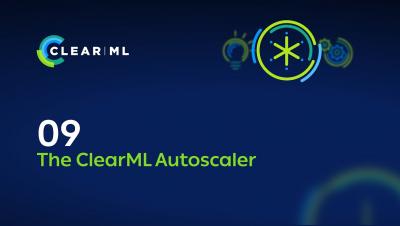Systems | Development | Analytics | API | Testing
Machine Learning
The Easiest Way to Track Data Science Experiments with MLRun
As a very hands-on VP of Product, I have many, many conversations with enterprise data science teams who are in the process of developing their MLOps practice. Almost every customer I meet is in some stage of developing an ML-based application. Some are just at the beginning of their journey while others are already heavily invested. It’s fascinating to see how data science, a once commonly used buzz word, is becoming a real and practical strategy for almost any company.
How to Use a Continual Learning Pipeline to Maintain High Performances of an AI Model in Production - Guest Blogpost
The algorithm team at WSC Sports faced a challenge. How could our computer vision model, that is working in a dynamic environment, maintain high quality results? Especially as in our case, new data may appear daily and be visually different from the already trained data. Bit of a head-scratcher right? Well, we’ve developed a system that is doing just that and showing exceptional results!
Best Practices for Succeeding with MLOps
Data science is an important skill, but the hard truth is many organizations aren’t seeing the ROI showing that data science work is making a business impact. Yet today, many organizations are still struggling to adopt a holistic approach centered around creating business value. Instead, they are focused on theoretical work. Here at Iguazio, we recently held a webinar with Noah Gift, founder of Pragmatic A.I. Labs, professor, author and MLOps consultant.
Using Synapse Services with Dynamics? These Tools Make it Easier
Synapse services are powerful tools for bringing data together for analytics, machine learning, reporting needs, and more. Synapse services serve the purpose of merging data integration, warehousing, and big data analysis together with the goal of gaining a unified experience to ingest, prepare, manage, and serve data for business intelligence needs.
Interview With Machine Learning Engineer, Ivan Goncharov
For our latest machine learning specialist interview on our blog, we’ve welcomed Ivan Goncharov, a machine learning engineer on the growth team at a unicorn MLOps startup, Weights & Biases.
Can ML be absorbed by the DBMS?
When we think of the various people and teams making use of ML and DBMS, we can place them on a spectrum based on the composition of their work.
Snowpark for Python: Bringing Efficiency and Governance to Polyglot ML Pipelines
Machine learning (ML), more than any other workflow, has imposed the most stress on modern data architectures. Its success is often contingent on the collaboration of polyglot data teams stitching together SQL- and Python-based pipelines to execute the many steps that take place from data ingestion to ML model inference.
The ClearML Autoscaler
Shield Yourself Against Payment Frauds Using AI/ML Models
Scammers exist in all forms of commerce. With the advancement of e-commerce, fraud has taken on new forms and become more powerful than ever before. Fraudsters take full advantage of any loophole in any system. Preventing, detecting, and eliminating fraud is one of the major focus areas of the e-commerce and banking industries at present. Banks and other financial institutions are investing in new ways to meet the challenge of preventing fraud.











